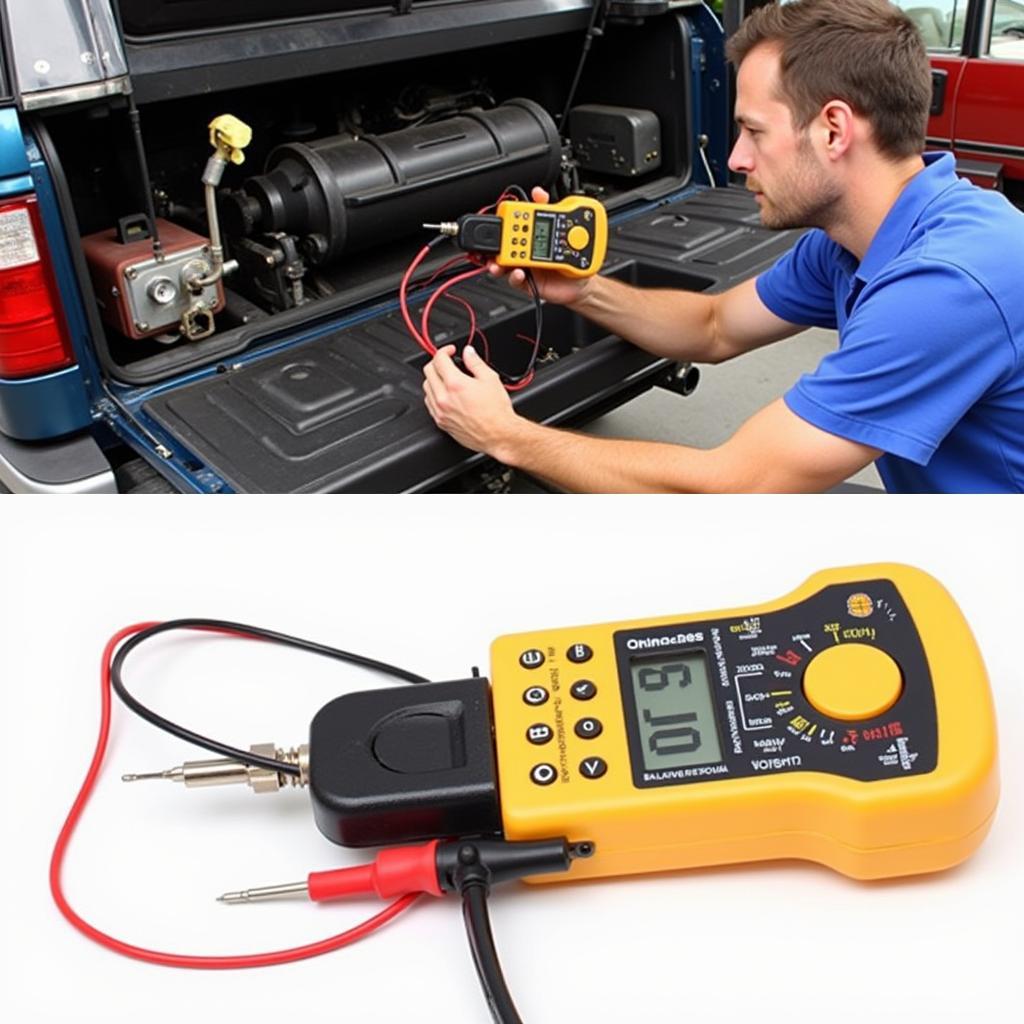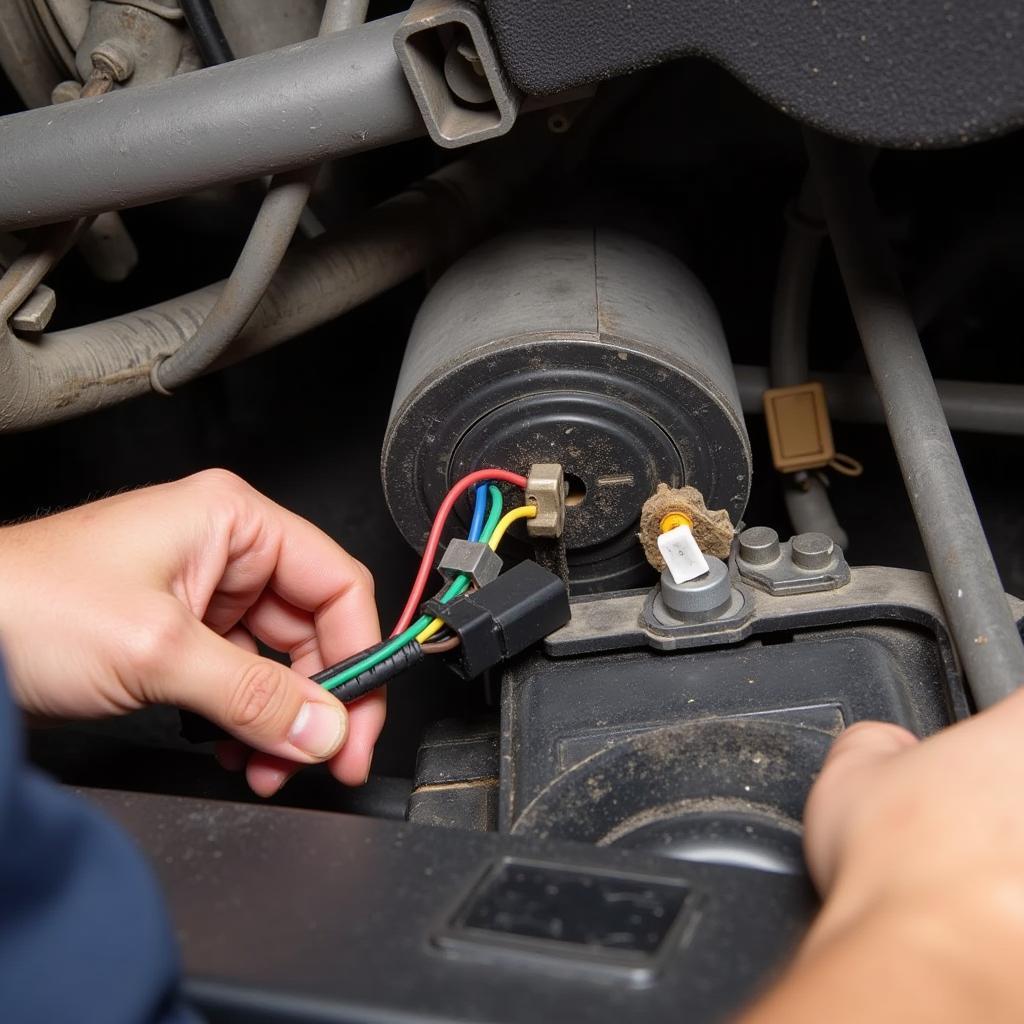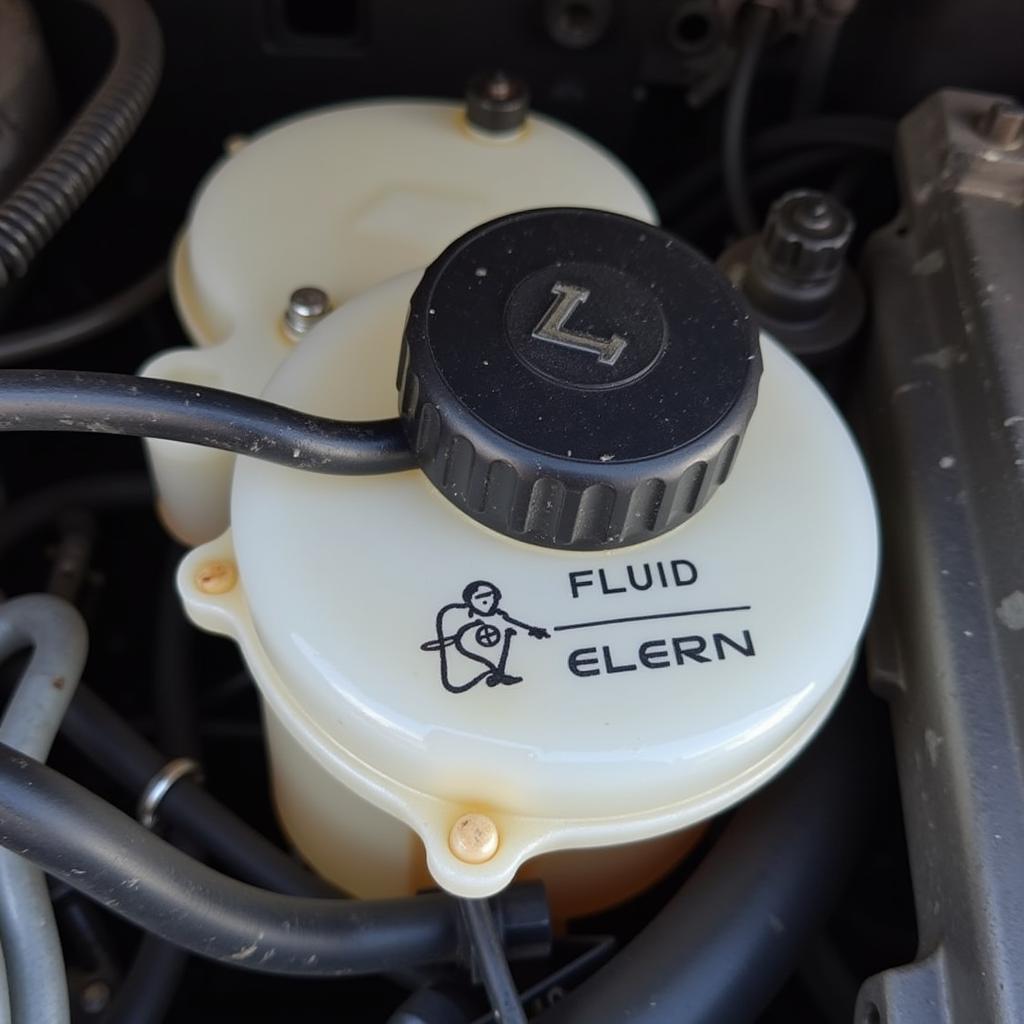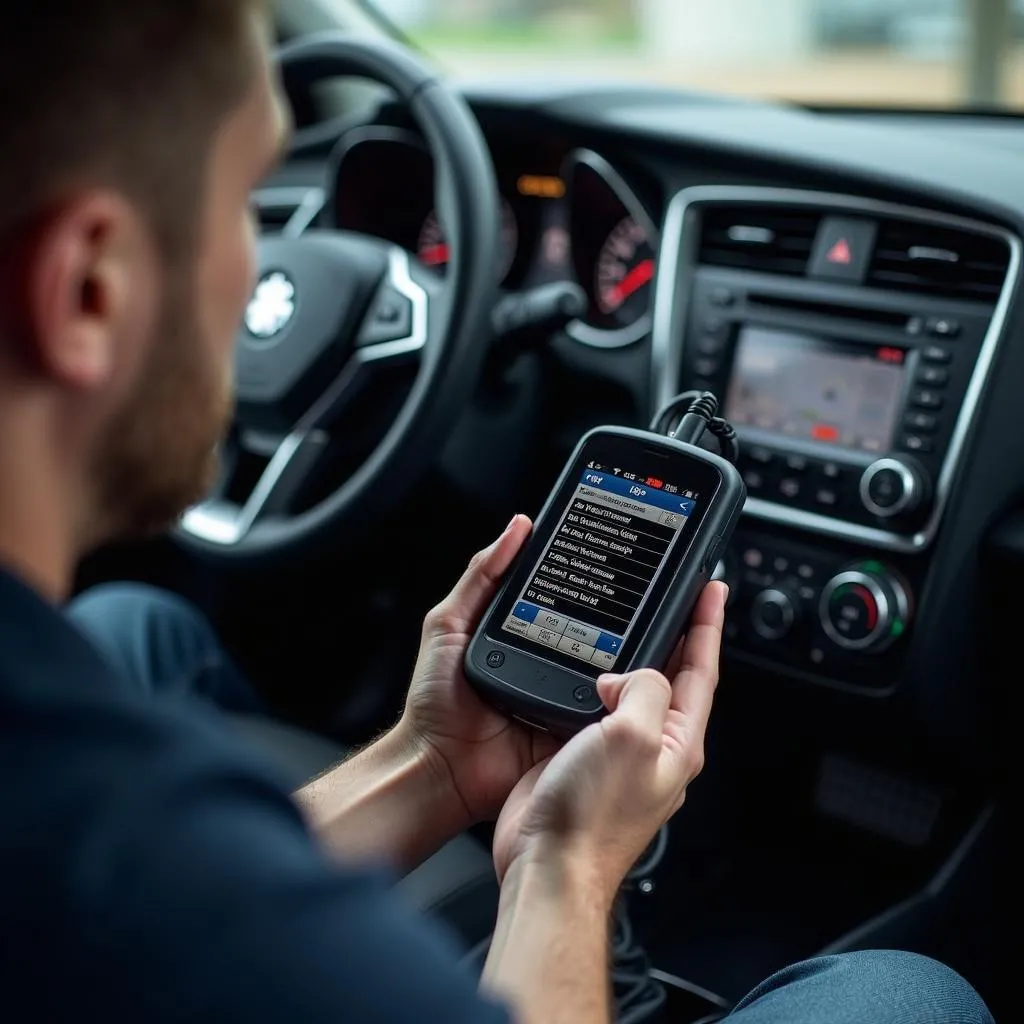The 1999 Chevy Blazer brake light warning can be a frustrating issue, but understanding its potential causes and solutions can save you time and money. This comprehensive guide will walk you through diagnosing and fixing the problem, from simple checks to more complex repairs, empowering you to get back on the road safely. 1999 blazer brake warning
Common Causes of a 1999 Blazer Brake Light Warning
Several factors can trigger the brake light warning on your 1999 Blazer. These range from simple issues like a blown bulb to more complex problems involving the brake light switch or wiring. Identifying the root cause is crucial for effective repair.
- Burnt-out Bulbs: This is the most common culprit. Check all brake lights, including the high-mounted stop lamp.
- Faulty Brake Light Switch: The switch, located at the brake pedal, can malfunction, preventing the lights from activating.
- Blown Fuse: A blown fuse in the brake light circuit will disable the lights. Consult your owner’s manual to locate the correct fuse.
- Wiring Issues: Damaged or corroded wires can disrupt the flow of electricity to the brake lights.
- Low Brake Fluid: While the brake light warning isn’t directly tied to low brake fluid, it can indicate a leak in the braking system, which needs immediate attention.
Diagnosing the 1999 Blazer Brake Warning Light
Diagnosing the problem involves a systematic approach. Start with the easiest checks and progress to more complex ones.
- Inspect the Bulbs: Visually check all brake light bulbs for signs of burning or damage. Replace any faulty bulbs.
- Check the Fuses: Locate the brake light fuse using your owner’s manual and check for a break in the filament. Replace if necessary.
- Test the Brake Light Switch: You can test the switch with a multimeter or by bypassing it temporarily. If the lights work when bypassed, the switch is likely faulty and needs replacement.
- Inspect the Wiring: Carefully examine the wiring harness for any signs of damage, corrosion, or loose connections. Repair or replace any damaged wires.
Solutions for Your 1999 Blazer Brake Light Problems
Once you’ve identified the cause, fixing the brake light warning is usually straightforward. Here are solutions corresponding to the common causes:
- Bulb Replacement: Replacing a bulb is simple and inexpensive. Ensure you use the correct bulb type.
- Brake Light Switch Replacement: This involves accessing the switch at the brake pedal and replacing it with a new one. This is a moderately easy DIY task.
- Fuse Replacement: Replace a blown fuse with one of the same amperage rating. Never use a higher-rated fuse.
- Wiring Repair: Repairing damaged wiring requires some electrical knowledge. If you’re unsure, consult a professional.
How Remote Diagnostics and Programming Can Help
Remote diagnostics and programming offer a cutting-edge solution to certain 1999 Blazer brake light warning issues, especially those related to the vehicle’s electronic systems. 1999 blazer brake warning This technology allows a qualified technician to access your vehicle’s computer remotely and pinpoint problems that may not be apparent through physical inspection.
What are the benefits of remote diagnostics?
Remote diagnostics can save time and money by avoiding unnecessary trips to the mechanic. This technology also allows for more precise diagnostics, leading to more effective repairs.
How does remote programming work?
Remote programming allows technicians to update or reinstall software in your vehicle’s computer remotely, potentially resolving complex electronic issues that affect the brake lights.
 Testing the Brake Light Switch in a 1999 Chevy Blazer
Testing the Brake Light Switch in a 1999 Chevy Blazer
Preventing Future Brake Light Issues
Regular maintenance is key to preventing brake light problems. This includes:
- Regular Bulb Checks: Inspect your brake lights regularly and replace any burnt-out bulbs promptly.
- Brake System Inspections: Include a brake system inspection during your routine vehicle maintenance.
- Addressing Brake Fluid Leaks: Any signs of brake fluid leaks require immediate attention to prevent further damage and ensure safe braking.
“Regular checks are your first line of defense,” says automotive expert, John Miller, ASE Certified Master Technician. “Catching these issues early can prevent more costly repairs down the line.”
Conclusion
Addressing the 1999 blazer brake light warning promptly ensures your safety and prevents potential complications. By following the steps outlined in this guide, you can effectively diagnose and fix the issue, or seek professional help if needed. Regular maintenance and prompt attention to any warning signs are crucial for keeping your Blazer’s braking system in optimal condition. 1999 blazer brake warning
 Inspecting the Brake Wiring in a 1999 Chevy Blazer
Inspecting the Brake Wiring in a 1999 Chevy Blazer
FAQ
-
Can I drive with the brake light warning on? It’s not recommended. Malfunctioning brake lights pose a safety risk.
-
How much does it cost to replace a brake light switch? The cost varies but typically ranges from $20 to $50 for the part.
-
How often should I check my brake lights? At least once a month.
-
What if I replace the bulb and the warning light is still on? This indicates a deeper issue, like a faulty switch or wiring problem.
-
Is remote diagnostics available for all 1999 Blazers? Not all models are equipped for remote diagnostics.
-
Can I perform remote programming myself? No, remote programming requires specialized software and expertise.
-
Where can I get my 1999 Blazer diagnosed remotely? Contact a qualified automotive service provider specializing in remote diagnostics. “Remote diagnostics are becoming an essential tool for modern car repair, allowing for quick and accurate problem identification,” adds Jane Doe, Senior Automotive Diagnostic Technician.


